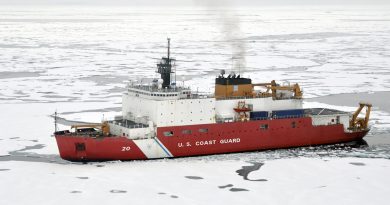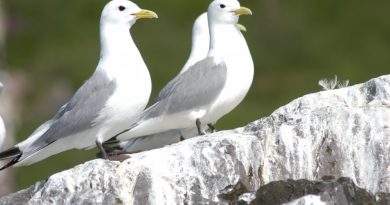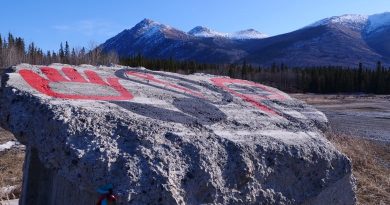Blog – I was angry with the media for how it covered the Arctic

I was angry with the media for a long time.
Many newspapers and news sites told us that there was a gold rush going on in the Arctic, in my opinion on flimsy grounds. The Guardian and the BBC as well as other websites claimed that when climate change melts sea ice and reveals huge hydrocarbon reserves, the situation may escalate even into a military confrontation. The reason invoked was that states are trying to seize control of the seabed for themselves and for their businesses, and if the claims overlap, there will be conflict.
This was and still is a mistaken interpretation of what is happening in the region. The Arctic Ocean coastal states have developed their continental shelf claims under international law in accordance with the UN Convention on the Law of the Sea. There is no drama, and it is not likely to occur.
However, I am no longer angry with the media, in fact the opposite is true. It is great that we in the western liberal democracies have polyphonic media.
The rise of populism
What made me change my mind? Populist strategies that try to smear the press as the source of lies. This way, in those countries where populists are gaining foothold they will have the luxury of giving interviews to the magazines and TV channels that they know will condone their error-ridden statements. President Trump is an extreme example of this phenomenon, but certainly not the only one of its kind.
So my anger towards the media has subsided as the world is changing. I am no longer worried if world affairs are not reported the way I as an expert would prefer. Now it is sufficient, if the reports are based on sources and at least aiming at some sort of truth. A major change in my world in a short time, but the surrounding world has also changed a lot.
In these times of populism, I think it is extremely important that we, as scientists, also participate in the societal debate. It is not self-evident that decisions would be based on research. This will require an effort from all of us, but it will be worth it!
This blog first appeared on the blog Kaikuja Arktikselta – Arctic Echoes.
Related stories from around the North:
Canada: About that bear – Why the media keeps getting the Arctic wrong, Blog by Heather Exner-Pirot
Finland: Climate change will destroy us… so what can we do about it?, Blog by Timo Koivurova
Norway: Climate change is driving micro-algae blooms into High Arctic and may affect food chains, says study, Eye on the Arctic
Russia: Bear ‘invasion’ in Arctic Russia: media too quick to blame climate change, experts say, The Independent Barents Observer
Sweden: New UN climate agreement “not strong enough”, says Swedish NGO, Radio Sweden
United States: New study predicts ‘radical re-shaping’ of Arctic landscape by 2100, CBC News



